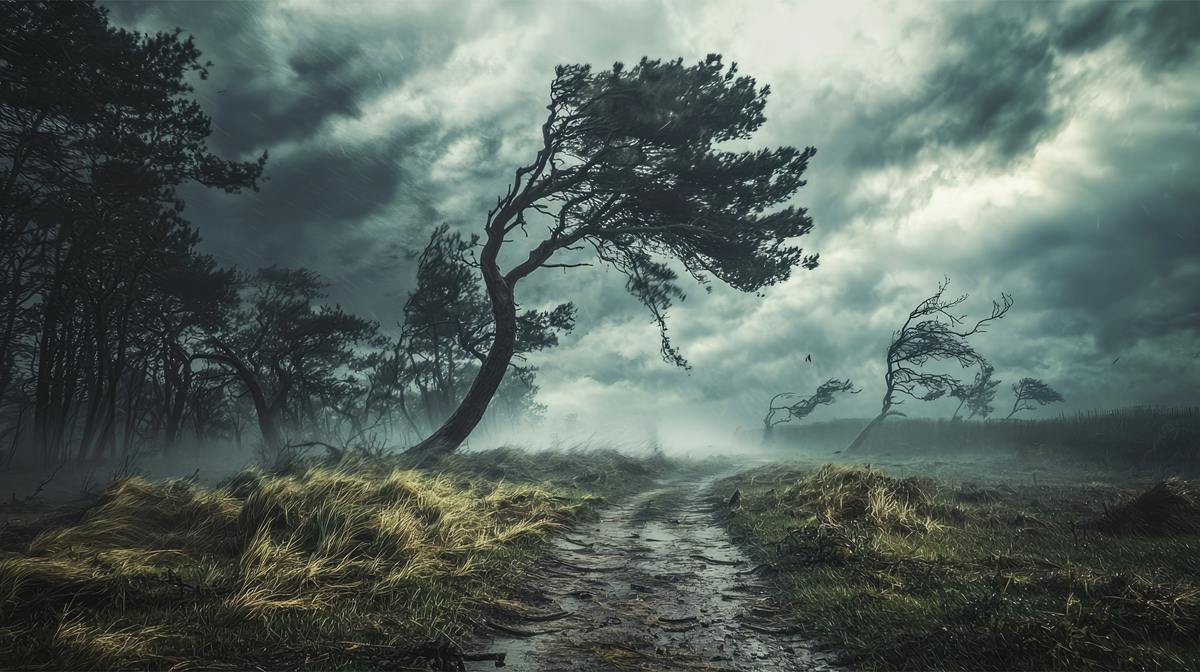Très chers amis,
Ces derniers jours, j’ai chanté et pleuré les mots du poème Le Vent Hurle de Jean Móreas, alors qu’un cyclone de catégorie 4 menaçait de ravager ma terre natale, dans le sud-est du Queensland.
Lors de la soirée de yoga-théâtre du 25 février, j’ai choisi ce poème pour guider notre exploration. Nous avons laissé résonner son cri lancinant, son énergie indomptable—des mots qui, soudain, prenaient une réalité troublante. « Le vent hurle », disait Móreas, et ce soir-là, il hurlait véritablement au-dessus de l’océan, gagnant en puissance, tandis que le Queensland se préparait à être frappé de plein fouet.
Depuis, je chante ce poème comme un mantra, une incantation, offrant ma voix à la tempête, appelant la nature à l’indulgence.
Quand enfin le cyclone a atteint nos grandes îles de sable, quelque chose a basculé—il s’est affaibli, passant d’une catégorie 4 à une catégorie 1. Comme si la nature avait eu pitié, le pire a été évité, et mes terres natales ont été épargnées d’une destruction irréparable.
Aujourd’hui, ici à Paris, alors que le printemps s’installe, j’accueille avec gratitude ces jours doux. Depuis mon retour, je trouve du réconfort dans les poètes français du XIXᵉ siècle, dont la profondeur et la beauté des mots me rappellent qu’au cœur du chaos, il y a toujours de l’espoir. Leur poésie a quelque chose de prophétique pour notre présent.
Le Vent Hurle est un pont entre la tempête et l’apaisement, entre la puissance indomptable de la nature et l’art de l’âme humaine. C'est avec beaucoup de respect que je vous confie ces vers:

Le Vent Hurle
Le vent hurle et sur la plaine,
Les arbres nus dans l'ombre pleine,
Crispent leurs bras vers le ciel noir,
Comme des spectres dans le soir.
La neige tombe en flocons lents,
Recouvrant de ses draps brûlants,
La terre froide où tout repose,
Et où la vie au loin s'expose.
Le gel s’étend sur les pensées,
Et tout se fige dans l’hiver,
Comme un soupir amer.
J'espère vous lire bientôt,
Isabelle Arthur Saint

Singing to the Storm
Dearest friends,
In the past few days, I have sung and wept to the words of Jean Móreas’ poem, The Wind Howls, as a Category 4 cyclone threatened to devastate my homeland in southeast Queensland.
At last week’s yoga-theatre evening, I chose this poem to take center stage. We explored its haunting cry, its restless energy—words that suddenly felt eerily real. “The wind howls,” Móreas wrote, and that night, it was truly howling over the ocean, gathering strength, as Queensland braced for impact.
Since then, I have found myself singing this poem like a mantra, an incantation, offering my voice to the storm, calling upon nature for mercy. When the cyclone finally reached our great sand islands, something shifted—it weakened, downgrading from a Category 4 to a Category 1. As if nature had taken pity, the worst was avoided, and my natal lands were spared irreparable destruction.
Now, here in Paris, as spring settles in, I welcome these gentle days with gratitude. Since my return, I have found comfort in the 19th-century French poets, whose depth and beauty remind me that at the heart of chaos, there is always hope. Their poetry carries something prophetic for our present time.
The Wind Howls is a bridge between the storm and stillness, between the raw power of nature and the art of the human soul. Here is my translation of the poem, staying as close to the original as possible.

The Wind Howls
The wind howls, and across the plain,
Bare trees in the shadowed terrain
Clench their arms toward the dark sky,
Like specters reaching in the night.
The snow falls in drifting shrouds,
Covering all in burning sheets,
The cold land where all lies still,
And where life, far away, stands exposed.
The stars are erased,
Frost spreads upon the mind,
And all is stilled in winter,
Like a final, bitter sigh.
Drop me a line, I’d love to hear what’s on your mind,
Isabelle Arthur Saint

